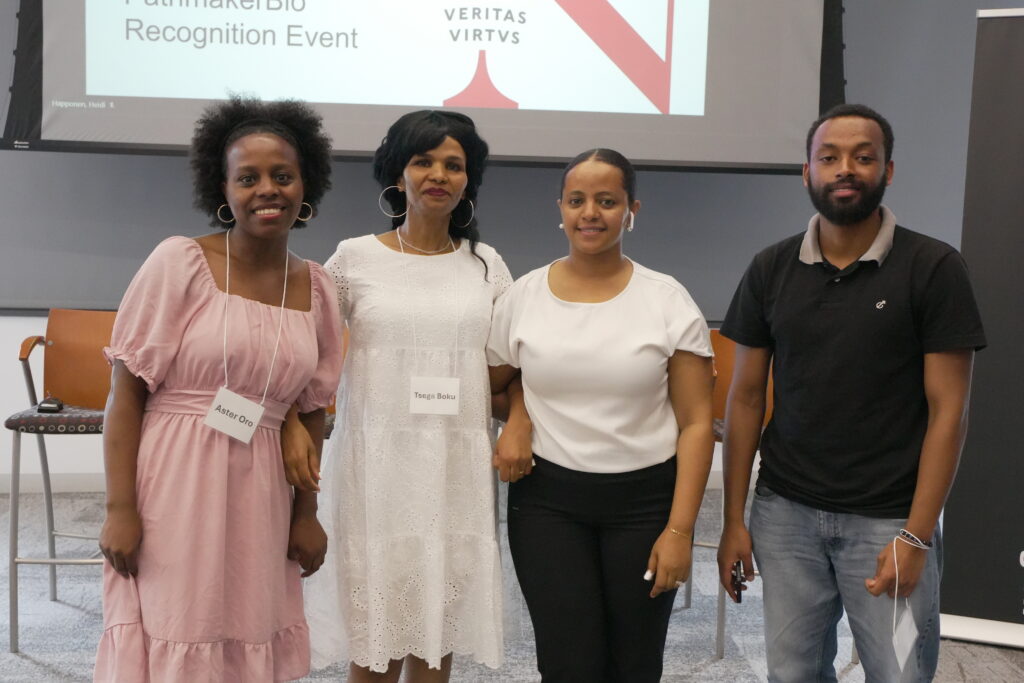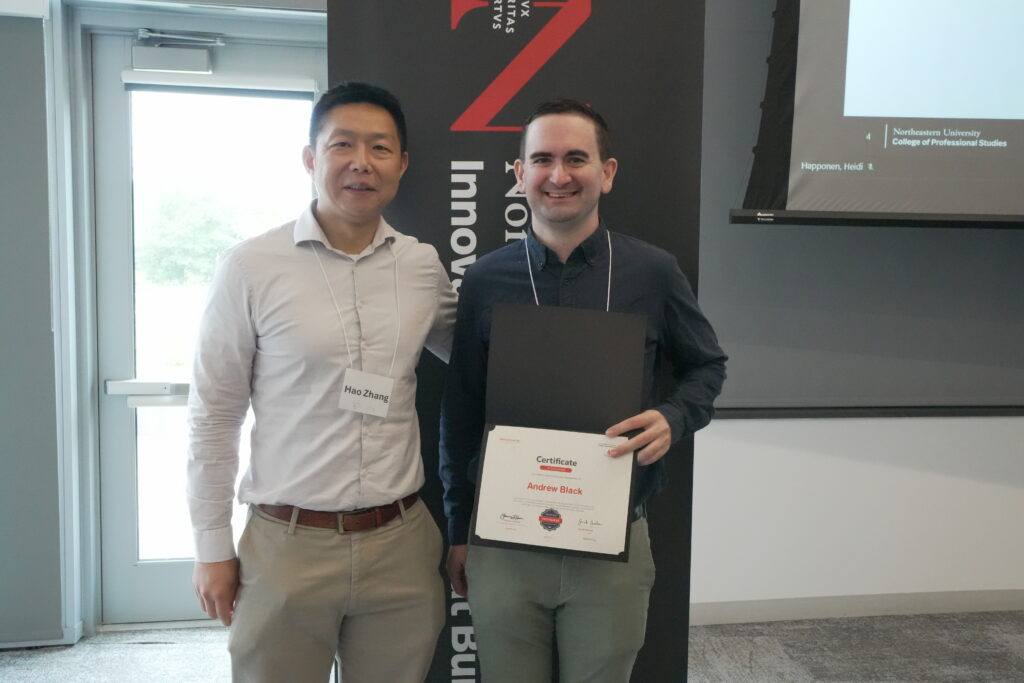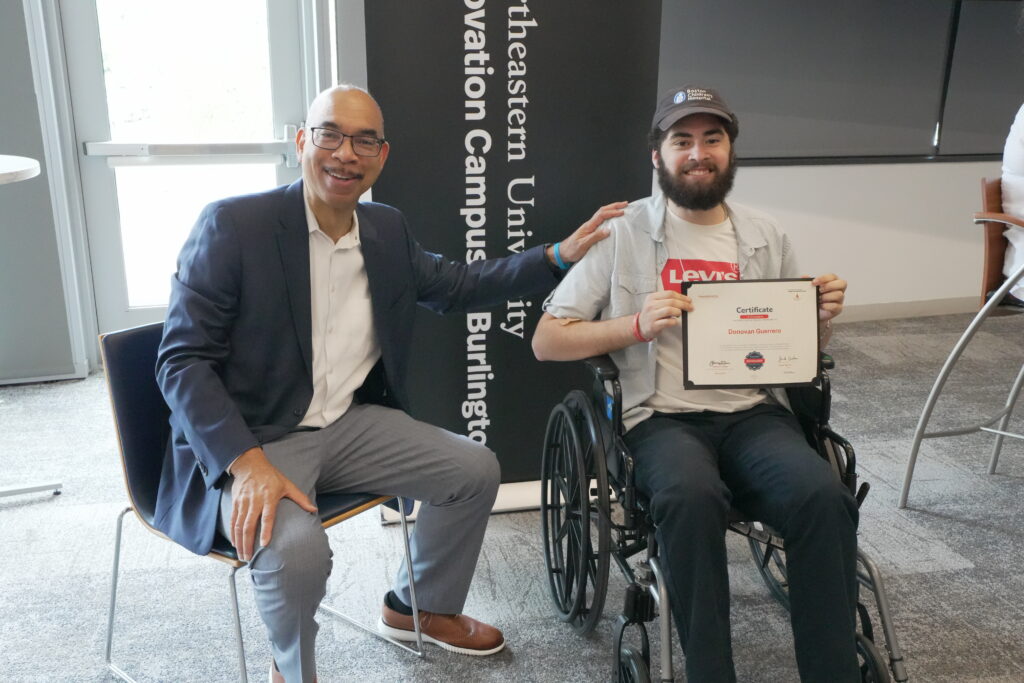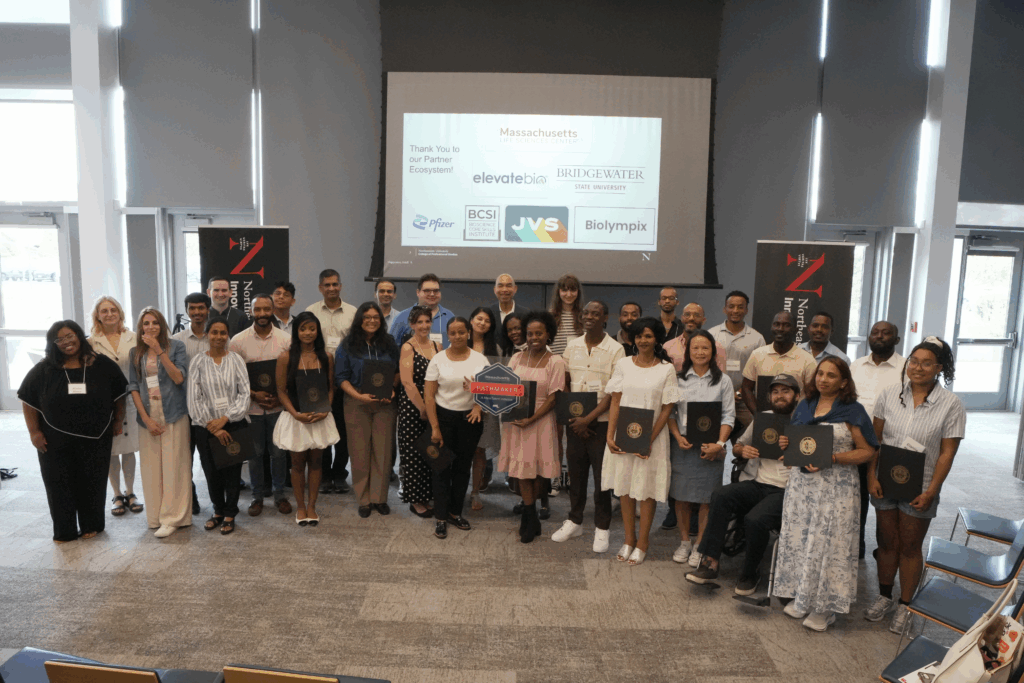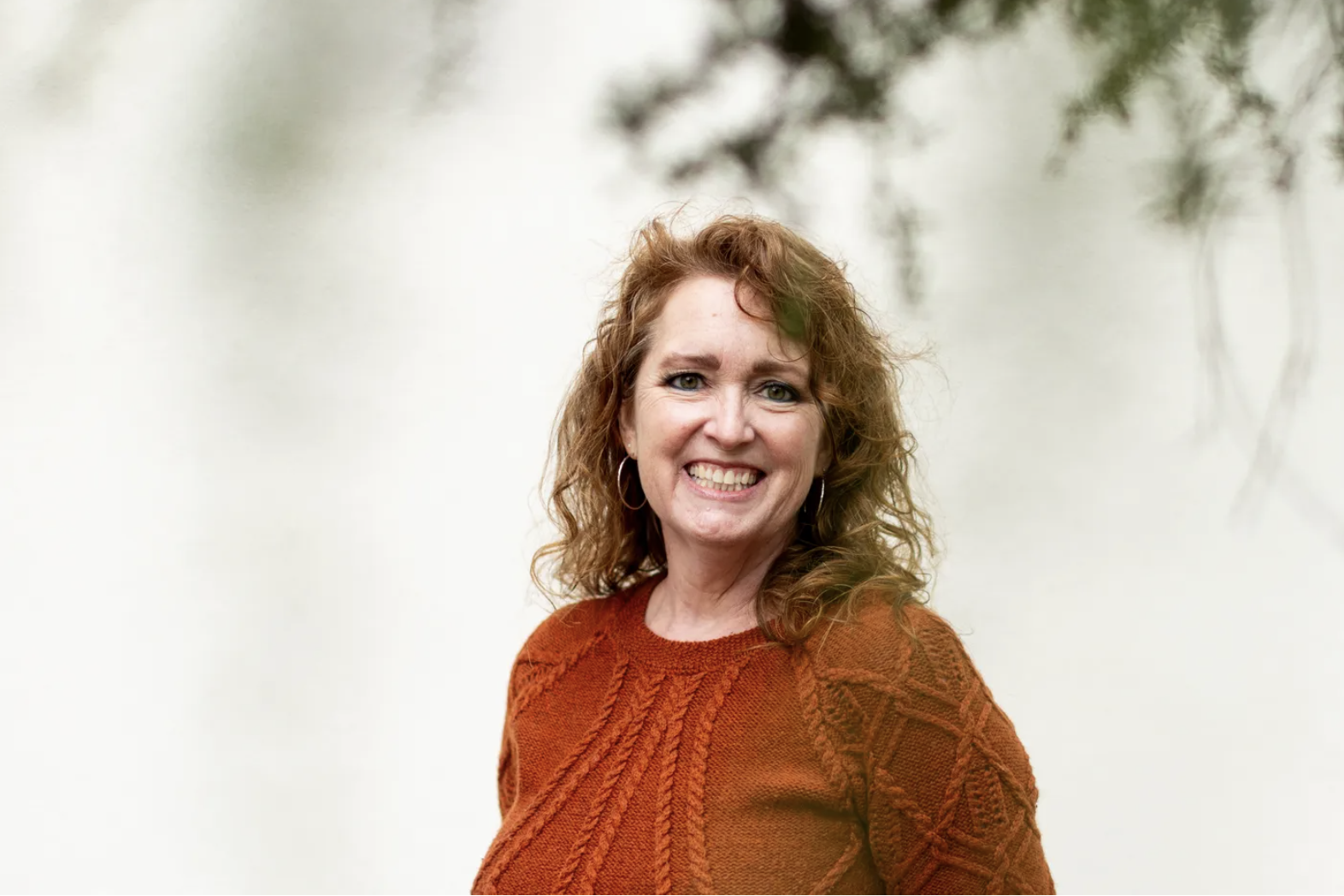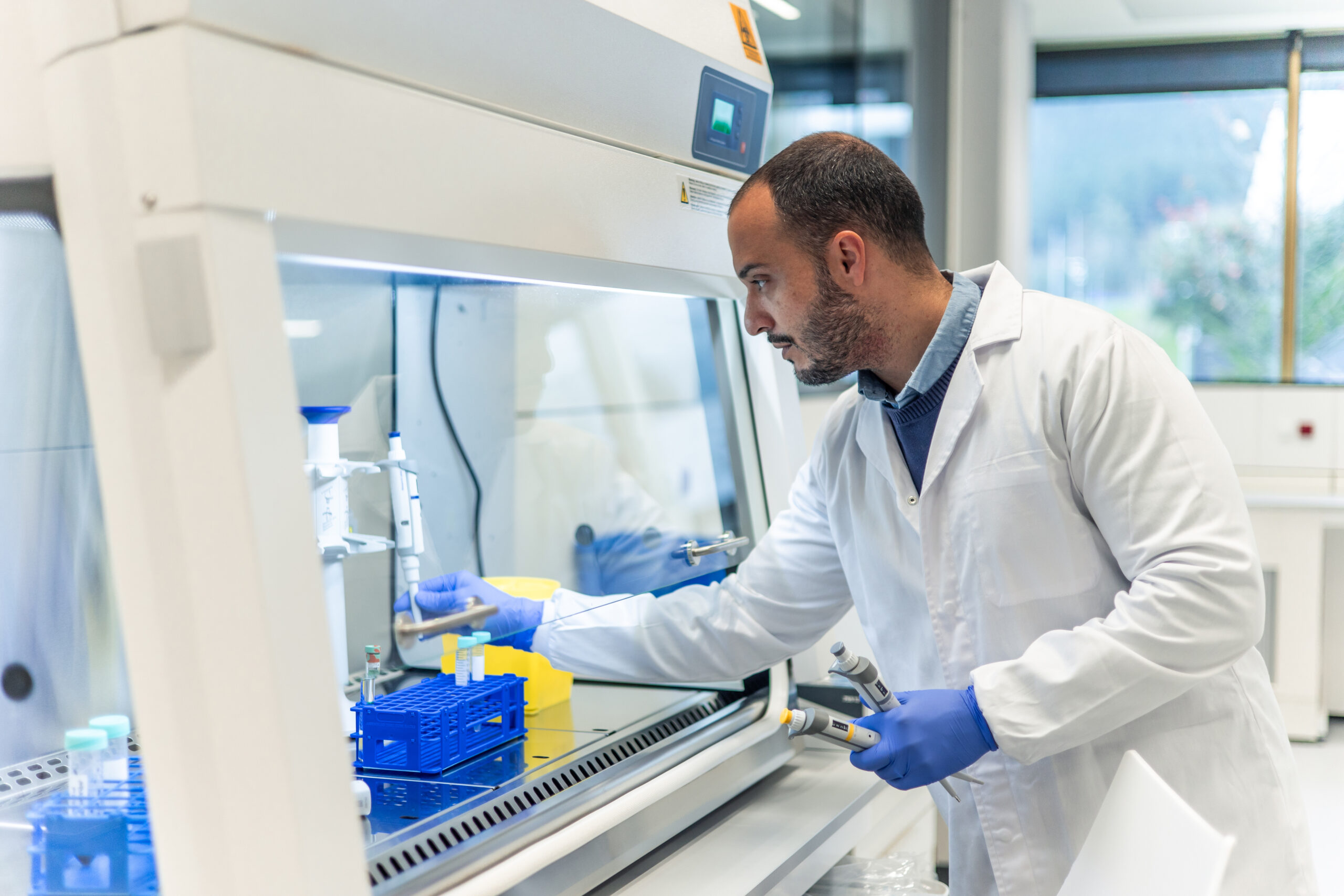Collaborating for Success: Expanding the Talent Pool for Massachusetts Biotech
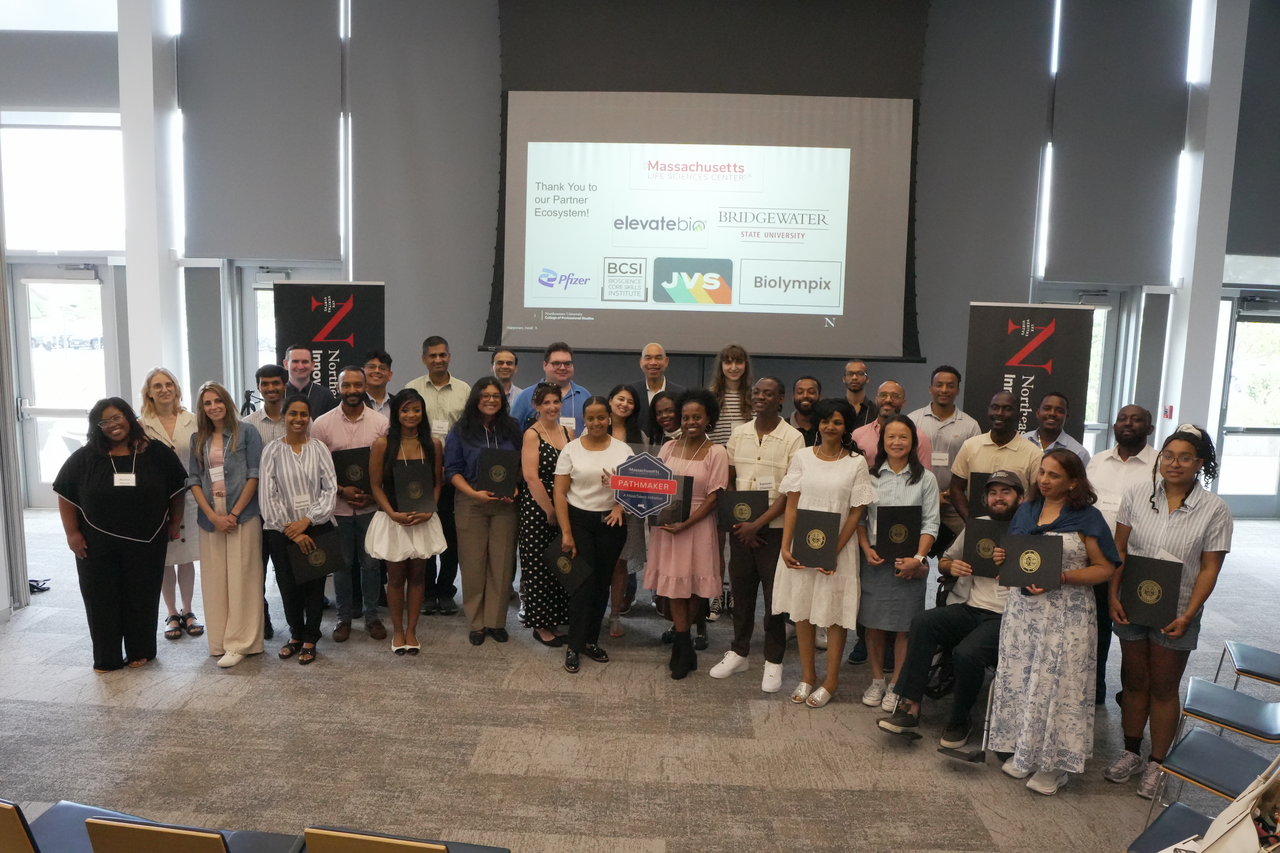
When Andrew Black found out about the PathmakerBio program last November, he didn’t at the time realize he would be starting it in December and landing a new job in biotech as a result.
“I got my master’s degree in chemical engineering a decade ago but due to some personal medical issues, had to step away from full time work and move into the gig economy for a while,” he said. “When I was ready to get back into the science field, I realized there were some technical skills I was missing, and this program offered an opportunity to gain those certified skills that the job market demanded.”
Black, like many of the 70+ other learners that gathered on a muggy July afternoon at Northeastern’s Innovation Campus at Burlington, were reflecting upon their journey as part of a celebration to recognize the accomplishments of the learners and leaders that made the biotech microcredentialling program such a success.
Funded by Massachusetts Life Science Center (MLSC), this new program brought together academic leaders from Northeastern University’s College of Professional Studies and Bridgewater State University, as well as industry leaders and career development organizations all invested in the shared vision to improve opportunities for more people to gain access to biotech jobs in Massachusetts.
Another PathmakerBio certificate recipient, Samuel Charles, found out about the program through his aunt who works at Bridgewater State University.
For Charles, it was about exploring possible career ideas as he was interested in both science and psychology. He found that the lab work was particularly exciting, giving him hands-on experience that he felt directly connected to real jobs.
The diversity of the learners in the room spanned all imaginable backgrounds and educational experiences – from those like Black who were returning to a career that life had to put on pause to those like Charles who were still trying to figure out their next path.
According to Jared Auclair, Dean of the College of Professional Studies and a global leader in biotech, that diversity is exactly the point of programs like this.
“I like to think of education from birth to earth,” Auclair said. “The traditional path of a four-year degree straight out of high school being the trajectory for career development simply isn’t the case anymore. The jobs of tomorrow don’t even have training programs in place today as we anticipate continued rapid expansion of tools like AI not to mention the ways we are able to work globally now.”
While it may seem odd to hear a dean of a college at Northeastern talk about a future that isn’t reliant on a traditional 4-year degree, according to Auclair, it’s precisely the role of higher education to be on the front lines of redefining the way we deliver the academic training and skills necessary for today’s workplace.
“The frontier of workforce and economic development is truly limitless,” Auclair added. “As we look to further deepen the availability of bachelor’s completion programs for working adults and microcredentials that can be stacked along one’s career path to stay relevant with the fast pace of change, CPS is at the heart of defining that future. It’s an exciting time to be in higher ed.”
That future could be seen and felt in the room of newly credentialed biotech learners, equipped with skills that are essential in the lab but often not even taught in doctoral programs.
As Charles noted, “I don’t know exactly what I want to do with this experience, but I know that at least this career path is an option. I didn’t know that before.”
For other newly-credentialed biotech learners, like Jonathan Kibirige, a native of Uganda, the program provided immediate access to a new career path. Recently hired by Lonza as a biotech assistant, Kibirige reflected on his journey sharing that at first he didn’t think he would be accepted.
“I couldn’t believe you picked me,” he told Ula Polsky, Director of Global Student Engagement for CPS. “Nobody had given me a chance before.”
“Whether it’s landing a job in a new field or learning a skill that might broaden your thinking about available opportunities,” Polsky reflected “programs like PathmakerBio are designed to help more people gain access to their futures – no matter what that future is.”
